We are a participant in the Amazon Services LLC Associates Program, an affiliate advertising program designed to provide a means for sites to earn fees by linking to Amazon.com.
Before becoming a mom, I didn’t really know much about breastfeeding.
When I got pregnant, I began learning about the science and the medical benefits for me and baby. I was amazed at the information; it was eye-opening. I looked forward to sharing the experience with my child, but I wanted to go into it with an open mind. Seeing so many moms struggle to breastfeed made me keep my expectations in check.
I knew that I wanted to breastfeed, but if it didn’t happen, it didn’t mean I was a failure as a mom.
Fast forward a few years, and suddenly I was learning how to wean a toddler. I never expected to breastfeed my baby for over two years, but that’s what happened.
Our breastfeeding journey was complicated, like most, I’d imagine. I’m glad I stuck it out as long as I did, but I’m very, very happy to be done.
But there’s a whole lot of information I didn’t have that could have made my journey easier. Since I didn’t have this info, I want to make sure other moms do. Here are some things I wish I’d known about breastfeeding:
IT’S NOT JUST ABOUT THE LATCH
I was adamant that my husband and I take the breastfeeding class at our local hospital during my pregnancy. Having so little experience with breastfeeding, I was eager to learn as much as possible.
$50 and two hours later, I had a very bored husband and a lot of information about latching and pumping. And yes, those two topics are obviously important. I’m sure many women who took the class are extremely grateful for everything they learned.

But breastfeeding can be much more complicated than just getting the perfect latch, and I didn’t plan to pump regularly.
The class focused heavily on learning what a good latch looked like, and the different positions you could try to attain a good latch. The emphasis placed on this topic left me expecting to fail. If latching was this complicated, how would I ever be able to nurse?
Imagine my shock when my newborn immediately latched to both breasts! Sure, we had some issues over the first few weeks, but overall, latching was one of our least concerns.
Latching can be a struggle for many women, but the amount of priority given to that information left a big gap in my knowledge about so many other things.
YOUR NIPPLES MIGHT SERIOUSLY HURT
Something I heard over and over again was that, if the latch was correct, there wouldn’t be any pain. Ha!
Yes, an incorrect latch will cause a ton of pain. But no matter what, most woman will still experience some level of pain as they learn to breastfeed. Your breasts need time to adjust to the intensity of being yanked on all day. The pain was just much worse than I had been prepared for.

I spent the first few months of nursing bawling my eyes out with every breastfeeding session because the pain was so intense.
Because I was under the assumption that this pain meant my latch wasn’t right, I constantly worried that my baby wasn’t latching well. If I had known that the pain was normal, it would have saved me so much stress.
Also, my mother-in-law told me that, when she was preparing to breastfeed, the advice given was to rub your nipples on rough towels to toughen them up. Do not do this. It will not help you, and you can actually damage your breast tissue. Your breasts will adjust with time. Just make sure to have lots of cold packs and Medela Gel Pads on hand to help ease the pain!
Seriously, those Medela Pads are one of my favorite postpartum items ever. Be sure to ask your nurses for as many of them as you can get your hands on before you leave the hospital with your new baby.
CLUSTER FEEDING IS INTENSE
I don’t remember ever hearing about cluster feeding before giving birth. The first time I experienced it, I was scared something was wrong.
Newborns generally eat every few hours, which is already a lot, given that a nursing session can easily last 45 minutes. But cluster feeding is a chunk of time where your baby wants to constantly eat, usually for a few hours straight.
The first time I experienced this, my husband was working the night shift and I was getting ready for bed. I suddenly found myself stuck under a baby who wouldn’t give me back my nipple and screamed every time I tried to unlatch her. This went on for about 5 hours.
I cried from exhaustion, I was bored, I seriously needed to pee, and it didn’t take me long to get dehydrated. Thank goodness I had my phone and Google to look for answers.
When I discovered this was normal, and not a sign that my milk supply was too low, I was relieved. But I was definitely not looking forward to the next cluster feed.
What sucks (pun intended) about cluster feeding is that you can’t usually predict when it will happen. Suddenly losing your ability to go to the bathroom, get food, or even grab the tv remote is frustrating. But if you do a few simple things, like always having water with you, keeping snacks nearby, or always peeing before beginning an evening nursing session, it can make those unexpected cluster feedings a lot easier.
And if you’re lucky enough to have a helper in the house who can bring you what you need, you can even relax and binge some of your favorite shows.
SOME WOMEN GAIN WEIGHT WHILE BREASTFEEDING
Everyone loves to rave about how much weight you can lose while breastfeeding. But to my disappointment, I had the opposite problem.
Thanks to being incredibly sick, I lost a lot of weight while pregnant. I only gained about 19 pounds before I gave birth. This meant that I lost all of my “baby weight” within about 3 weeks postpartum. Note: this did not mean that my body went back to its pre-baby shape.
Thanks to my inability to keep anything down while pregnant, I ate whatever didn’t sound nauseating. This lent to bad habits that carried over postpartum. I was also starving, thanks to the never-ending breastfeeding. These two factors led me to gain all of my weight back immediately, and I began packing on the pounds as I ate to deal with my postpartum depression.
While many women do lose weight thanks to the calories expended during breastfeeding, there are also many women who don’t. Knowing this before I gave birth could have pushed me to make healthier food choices. And maybe I wouldn’t have felt like such a failure when I didn’t magically shrink to a size two overnight.

Breastfeeding has many incredible benefits, but it should not be viewed as a weight loss tool.
SUPPLY AND DEMAND IS KEY
Once you understand this, it really explains so much about breastfeeding. Cluster feeding is said to be a way to tell your body to increase your supply. Pumping after nursing sessions can send signals to make more milk. Supplementing with formula alerts your body that your baby doesn’t need as much breastmilk. All of these are related to supply and demand.
Supply and demand is a critical part of breastfeeding, and it’s something many medical professionals don’t fully understand. This can be a factor in why some women find themselves producing very little or supplementing; they don’t understand that they need to force their bodies to produce more milk. And this isn’t on them, but on the lack of education and support given to breastfeeding moms.
Lack of understanding about this can also lead to issues with pumping.
WHAT YOU PUMP ISN’T ALL YOU MAKE
As incredible as breast pumps are (and I even had the chance to use a medical grade one that costs $2000), they will never be as efficient at removing milk as a baby. This means that when you pump, you’re never ’emptying’ your breast to the level your baby could.
Many moms pump, see how little they produce, and then assume their baby isn’t receiving enough milk. Then they begin supplementing with formula to make up the difference, and their supply drops even lower. Eventually, they find themselves working twice as hard to produce any milk, and they begin to switch over to formula entirely.
My oversupply leveled out when my baby was a few months old, and suddenly I couldn’t even pump a full ounce. I was scared that I wasn’t making enough milk, but my daughter kept nursing regularly and I chose not to supplement. Thankfully her weight kept climbing.
I’m aware that every experience is different, and I’m very blessed that I was always able to produce enough to feed my daughter. But if there are no medical issues, you follow the laws of supply and demand, and you and your doctor are okay with your child’s weight and health, you should be able to nurse with success.
And if you’re a pumping mom, God bless you. Pumping moms are rockstars, and they have my complete admiration. That’s some seriously hard work!
YOU MAY HAVE AN OVERSUPPLY
We regularly hear about moms who don’t produce enough milk, but I had no idea you could experience the opposite situation.
Having an oversupply means that your body produces too much milk. This can lead to mastitis and clogged ducts, pain, and engorged breasts. And aside from dealing with the pain, your baby can also experience some unpleasant side effects.
With my oversupply came an incredibly strong letdown. This meant that when a nursing session would begin, my milk would come in so strong that I would spray my daughter in the face. As you can imagine, she wasn’t a fan. She would then begin trying to eat as quickly as possible, while coughing, sputtering, and gagging. Her frustration led to constantly latching and unlatching, which didn’t help my already sore nipples.
My nursling would fill up quickly on lower-fat milk and swallowed a lot of air. This meant that she wasn’t getting the milk with higher fat content, so she wouldn’t be full as long, and she had a lot of gas and green diapers. Between these issues and acid reflux, I often had a very unhappy and uncomfortable baby.
Eventually, I learned that if I pumped for just a few minutes before a nursing session, I’d be able to eliminate spraying my daughter in the face with the lower-fat milk, and I wouldn’t be pumping long enough to increase my supply, which I was always terrified of. And thankfully, my oversupply evened out a few months after giving birth.
Please check out What No One Told Me About Breastfeeding, part 2, where I cover acid reflux, weaning a toddler, and much more. And please pin the image below for other moms to find!
Posts You Might Like:
- Baby Sleep Safety – My Interview with an Expert Sleep Consultant
- What No One Told Me About C-Sections
- What If You Don’t Love Being a Mom?
- The Worst Advice for New Moms

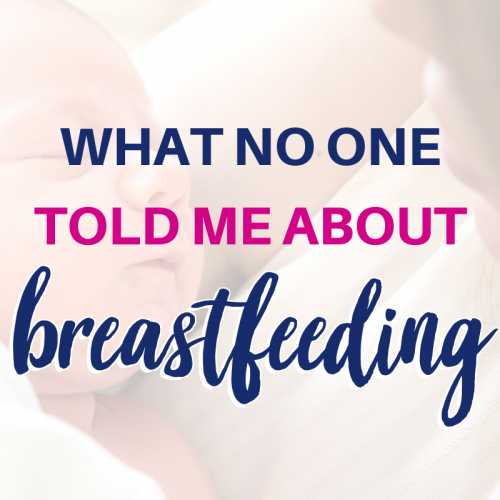
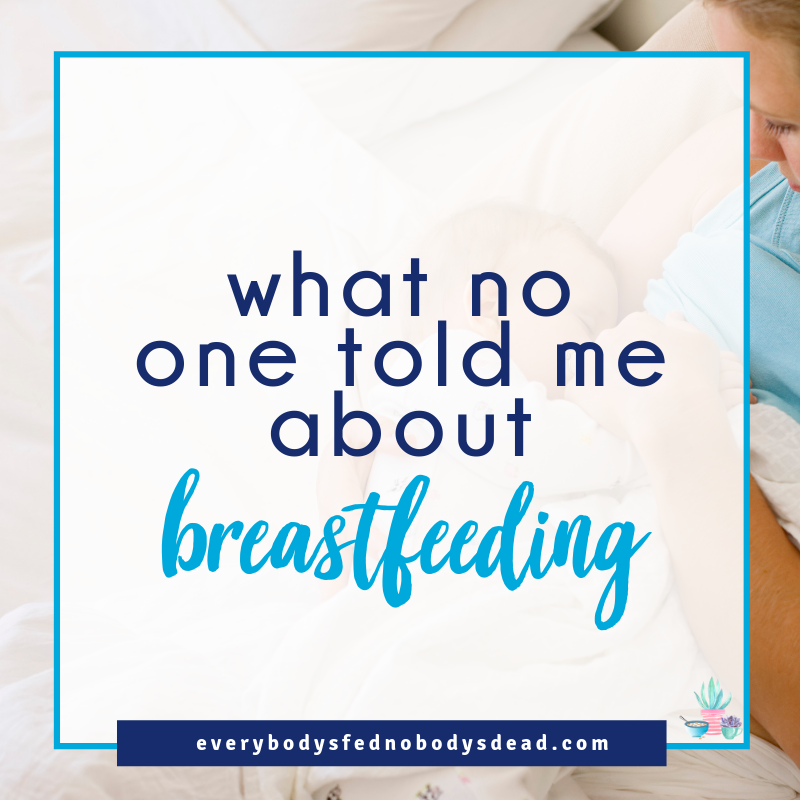
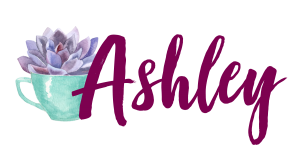
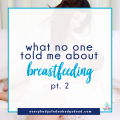

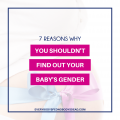
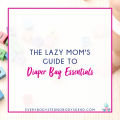
Leave a Reply
You must be logged in to post a comment.